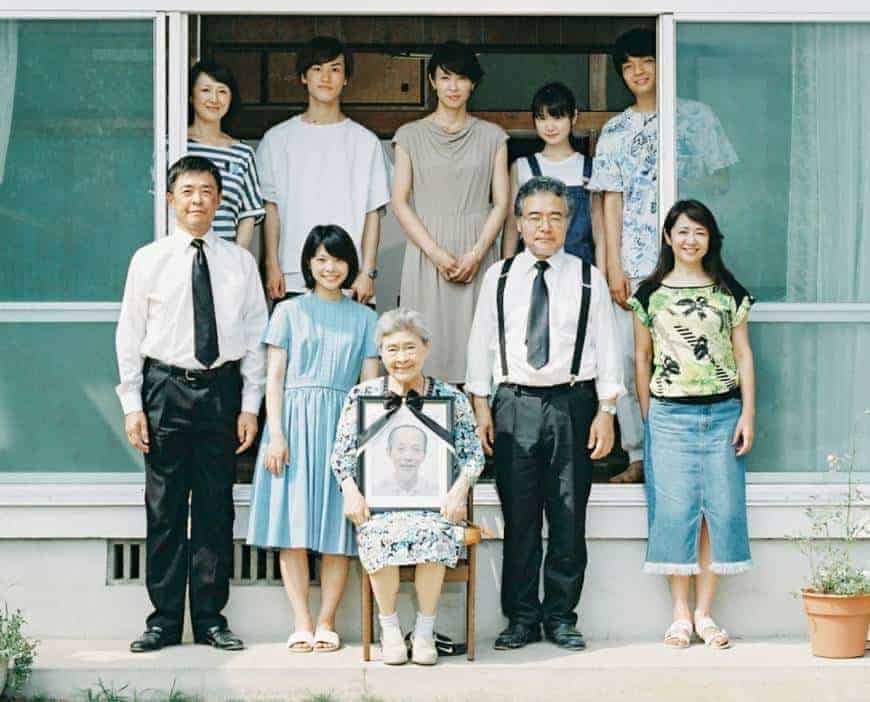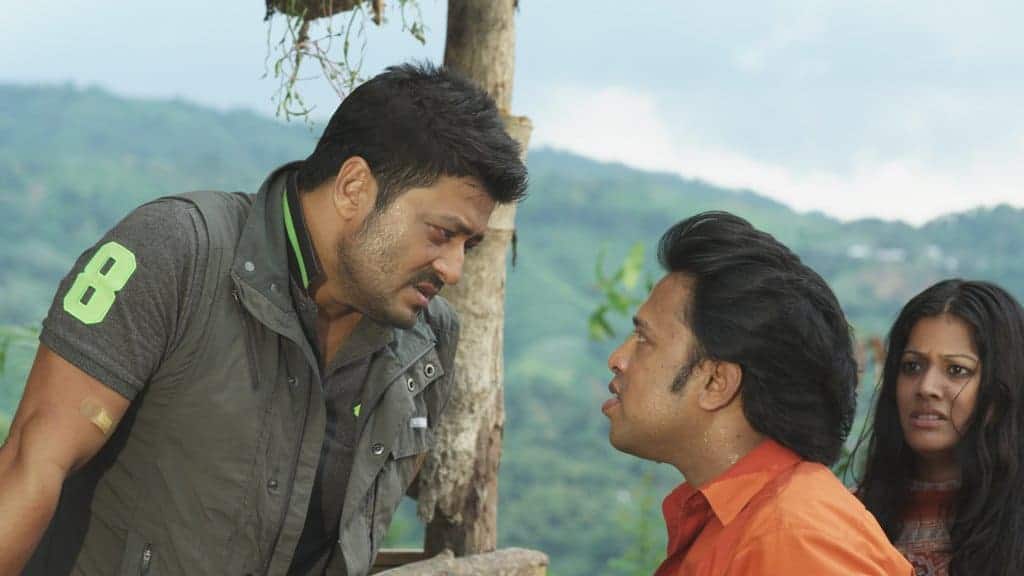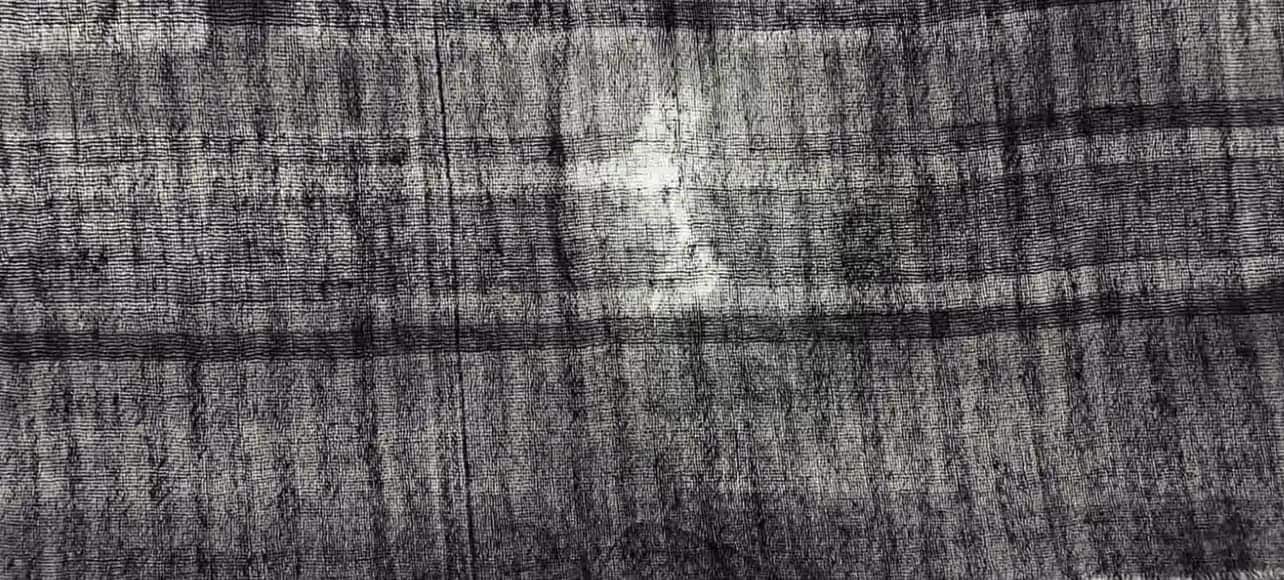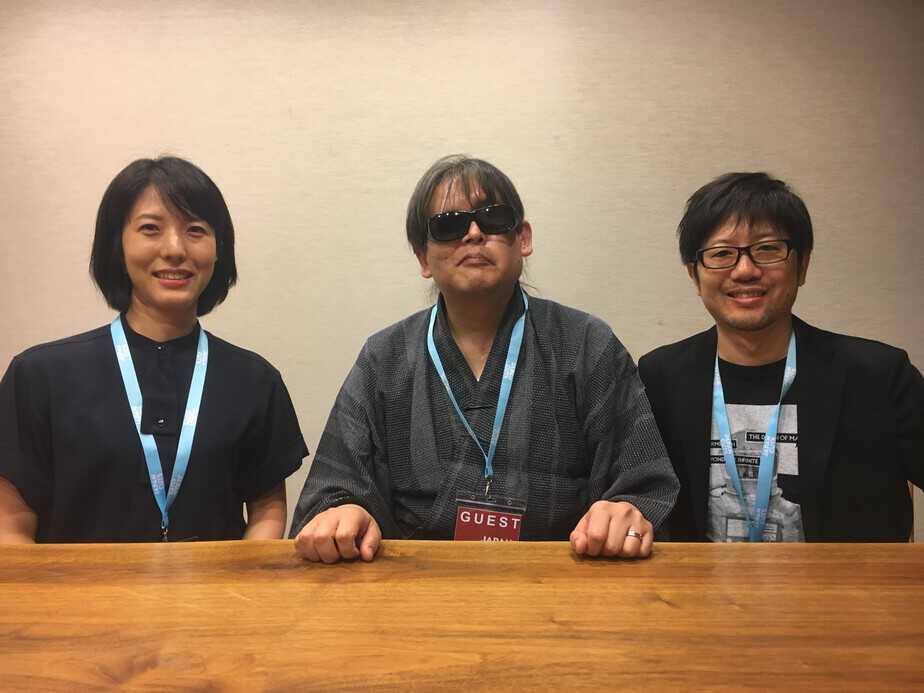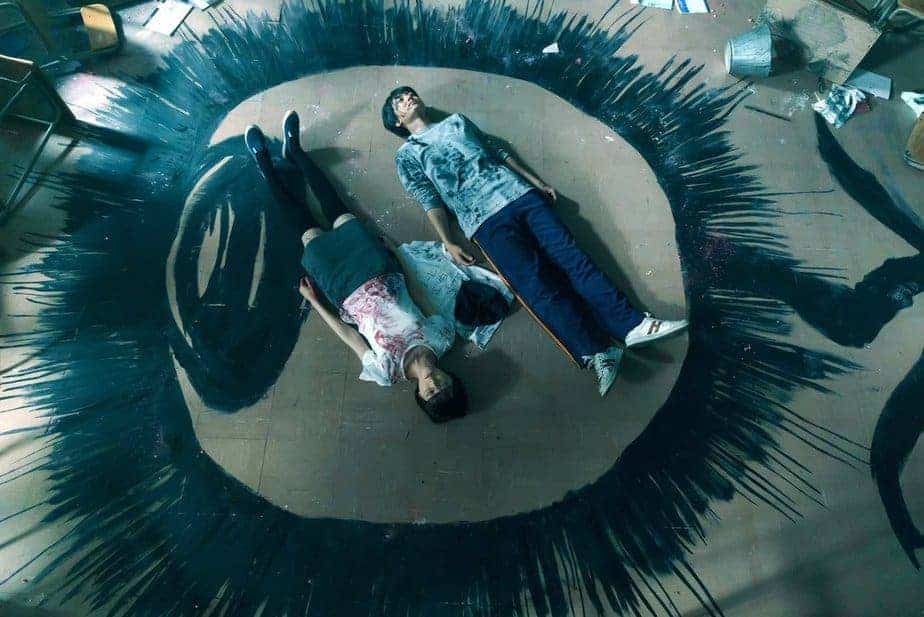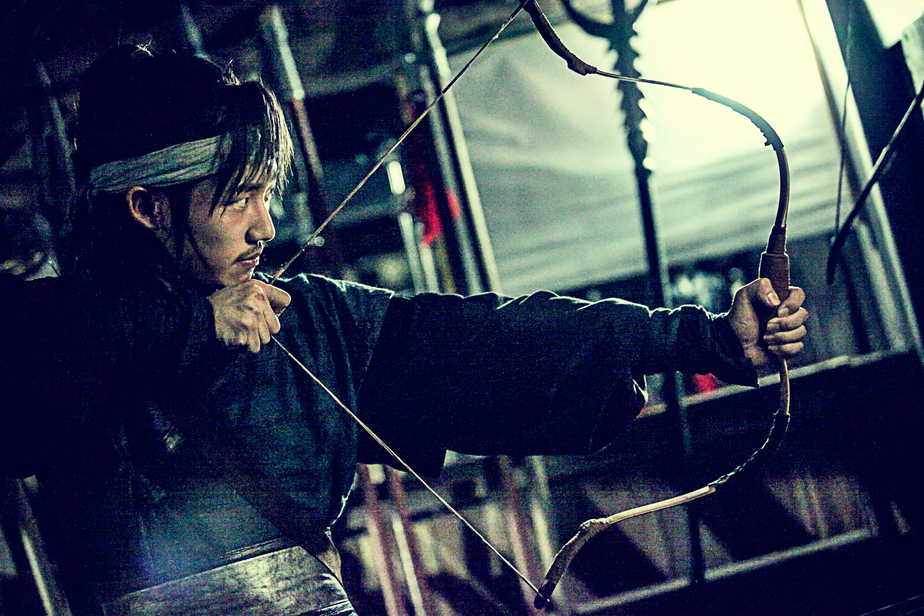The family drama has always been one of the flagships of Japanese cinema, with local filmmakers having perfected a style that was initiated in the 50's and was established in its current form through the films of Hirokazu Koreeda. “Goodbye, Grandpa” follows these lines, closely.

Goodbye, Grandpa screened at Vesoul International Film Festival of Asian cinema, running from January 7 to February 14.
The story uses the regular “trick” of the death that brings the family together. This time the deceased is the grandfather, Isao, whose funeral brings together all members of the household of Harunos to the rural place Isao's children grew up. Akio is the older brother, whose wife, Jun, has divorced him, and has two children he seems to know very little about; Yohei, the older son who has some psychological problems rarely leaving his house and Chiharu, a high-school student who seems really cool and mature for her age. The younger brother is Seiji, who has just been let off from the company he worked for, is married to Mariko, and has also two children; Kiyota, a hip young son who studies in a big city and Yoshiko (the protagonist of the film), a travel agent who feels guilty for having sex when her grandfather died. To add to the explosive mixture, Haru, the grandmother is senile, the two brothers are constantly antagonizing to the point their “feud” becomes physical, and Kaoru, their hip, rich and distant sister arrives at the funeral in her Ferrari.
As Morigaki makes a point of showing how funerals are not so different from weddings, he also makes a number of comments regarding the contemporary Japanese society. The issues middle-aged men face with their employment, the difficulty or retaining relationships in the modern era, the way society perceives marriage, family and appearance, particularly regarding women, the issue with the growingly aging population of the country, religion, and in surrealist fashion, the connection between sex and death. All of the above are presented with much humor and in very entertaining fashion, although Morigaki does not allow the seriousness to be lost.

The most comic parts derive from senile Haru, whose appearance and words are an almost constant source of laughter, with the same applying to the brothers' fights, with the two of them acting like children, particularly when they are drunk, to the disgust of the rest of the family. Yohei's awkwardness is another source of laughter, in visual terms though. On the other hand, Yoshiko is the source of “seriousness” in the film, with her questions and the way she tries to understand life and death.
In that fashion, the cast does a great job in implementing the aforementioned combination. Yukino Kishii as Yoshiko looks almost constantly drowned in thought, and filled with regret, but in adorable fashion. Ryo Iwamatsu as Akio and Ken Mitsuishi as Seiji highlight their similarities through their differences. Amane Okayama is great as the dysfunctional son Amane and Karin Ono plays the cool and more-mature-than-her-age Chiharu to perfection. Hisako Ohkata as Haru is hilarious in her senility and Miki Mizuno as Kaoru highlights her difference from the “country bumpkins” with her elegance, as she becomes a role model for Yoshiko.

In the technical department, we meet, once again, the regular style of the contemporary family drama, with the relatively slow pace implemented by Kenichi Hirai's editing, the attention to detail and the depiction of the natural beauties of rural Japan through Keisuke Imamura's lens and the permeating realism, implemented by the bulk of the production values.
“Goodbye, Grandpa” is a film fans of Japanese family dramas will cherish, although I felt that the movie does not do much to set itself apart from the plethora of similar productions coming out of Japan.


